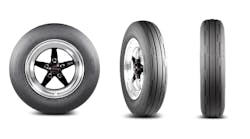This MTD exclusive was provided by Dennis McCarron, a partner at Cardinal Brokers Inc., one of the leading brokers in the tire and automotive industry.
First, let me take a moment to congratulate every hard-working mechanic, general service tech, tire tech, alignment specialist, sales advisor, store manager, service manager, owner and anyone whose title I didn’t mention who made it to the last few months of 2020.
You have tackled every single obstacle this year has thrown at you with resolve and dedication.
Bravo for a job well-done!
It is, however, November. And pandemic or not, you need to take a deep breath and shift your focus back to the future. That means starting to figure out what 2021 will look like. Yes, that means it’s time to make a budget.
I don’t have a crystal ball. But I have a lot of experience in this industry. And one of the claims I can make is that businesses that make a budget always outperform the industry average.
You may have seen dark days in April and May. June might have been like a shot out of a cannon with the release of pent-up demand. Maybe July, August, September and October were decent, but not record-breakers. Overall, dealers who already had a budget in place were able to react more quickly and make better decisions than those without one. Let’s dig into four basic areas of planning to help position your business for success in 2021:
Sales forecasting. Many times, this is where I meet the most resistance when talking with dealers. I hear, “Well, you can’t predict the future, so why bother?” Making a budget is about more than predicting what’s going to happen next year. It’s performing a thorough analysis of the industry, collecting historical data from your own business and thinking through the process. It also is the realization that situations are not always set in stone. All sorts of things could trash your budget. Or maybe you will receive an unexpected “gift,” like a competitor deciding to close shop?
A budget gives us a guideline of what to expect and how gross margins and expenses should follow suit. If sales are lagging, a budget forces us to monitor gross profit and begin to make surgical cuts in expenses. Without a budget, we may be tempted to wait too long and now we will have to cut out a huge chunk of expenses, like a chainsaw.
When drawing up a budget, think through what you know about the upcoming year and your own business. Is the population in your area expected to increase, decrease or stay flat? Are your employees happy and not likely to quit? Is your competition investing in its business?
Make the best estimates that you can and then look at each month’s P&L statement. This year, I would suggest using two years’ prior data for March and April. Once you’ve made a budget for each month, set some high-level goals for sales and service that align with those budgets. Then every month, take 30 minutes to review how the previous month panned out, reasons why things happened and if you’re starting to see a trend. Revise your sales budget accordingly. This means making adjustments to gross profit and expenses.
It also is worth noting that not every sales budget should be a 5% to 10% increase over the previous year. It should be a realistic assessment of current conditions. If a competitor opens a shop across the street or a major retailer buys out another competitor, there is going to be disruption and you have to account for that.
Capital expenditures. Take a good, hard look at the machinery in your shop and the condition of your building. Maybe it’s time to invest in a little maintenance? Maybe it’s time to make some major upgrades? If you need to replace some fairly heavy-duty machinery, speak with your accountant and your bank manager. There are various ways to pay for these items and interest rates are at historic lows.
Insurance. Insurance companies have taken a beating this year and are going to raise prices to off-set all the payments they’ve made. Make sure you shop around.
Disaster planning. What would happen to your business if you died or were incapacitated? Who would take over day-to-day operations and decisions? Who will be authorized to make payroll? Every single tire dealership should have a disaster plan. Don’t think that the unexpected won’t happen to you. Carve out some time, sit down and put a plan in place.
Hopefully, the above will help underscore the fact that financial budgeting is not the nightmare that some business owners think it is. Getting started is the biggest challenge. Once the ball gets rolling, it can even be fun. And it’s almost guaranteed to improve your business.
Dennis McCarron is a partner at Cardinal Brokers Inc., one of the leading brokers in the tire and automotive industry (www.cardinalbrokers.com). To contact McCarron, email him at [email protected].



